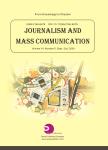On the Crisis of Democracy
作者机构:University of Sao Paulo Sao Paulo Brazil
出 版 物:《Journalism and Mass Communication》 (新闻与大众传媒(英文版))
年 卷 期:2019年第9卷第1期
页 面:33-52页
学科分类:05[文学]
主 题:democratization crisis quality of democracy semi-democracy illiberal regime authoritarianism populism
摘 要:In the last three decades of the 20th century, important political changes occurred in all regions of the world, making the institutions of many existing political systems closer to the ideals of democracy. But as happened in other moments of history, those processes of democratization, even when successful, always occurred through advances and retreats. Thus, contemporary political practices, procedures, and institutions embody democratic ideals only partially. In many nations, in the present, the rule of law, civil, and political rights, and institutional mechanisms for citizens’ control of governments remain ineffective or underdeveloped. Thus, a double concern prevails among analysts: on the one hand, the regression to authoritarianism in some countries after the processes of political changes—Russia, Venezuela, Nicaragua, and Turkey being the paradigmatic examples;the emergence of semi-democracies, i.e., hybrid or illiberal regimes, which have provoked a new interest in the study of patterns of institutional design, the critical role of civil society, different political-cultural developments, authoritarian legacies in the context of the new democracies, competitive authoritarianism and new dictatorships. On the other hand, the acknowledgement of intrinsic limits of the historical development of the democratic regime even in the case of old democracies, i.e., the fact that political equality, active citizen participation, and effective control of abuse of power have never been fully realized in practice. This is the general context in which many analysts and part of the public opinion sustain that there is a crisis of democracy. The general diagnosis refers to the decreasing trust in political elites, political parties, parliaments, governments, and to the dissatisfaction with the regime among democrats;it refers also to the weaker and sometimes erratic performance of democratic institutions and particularly to the failure of the representative system. The pict



